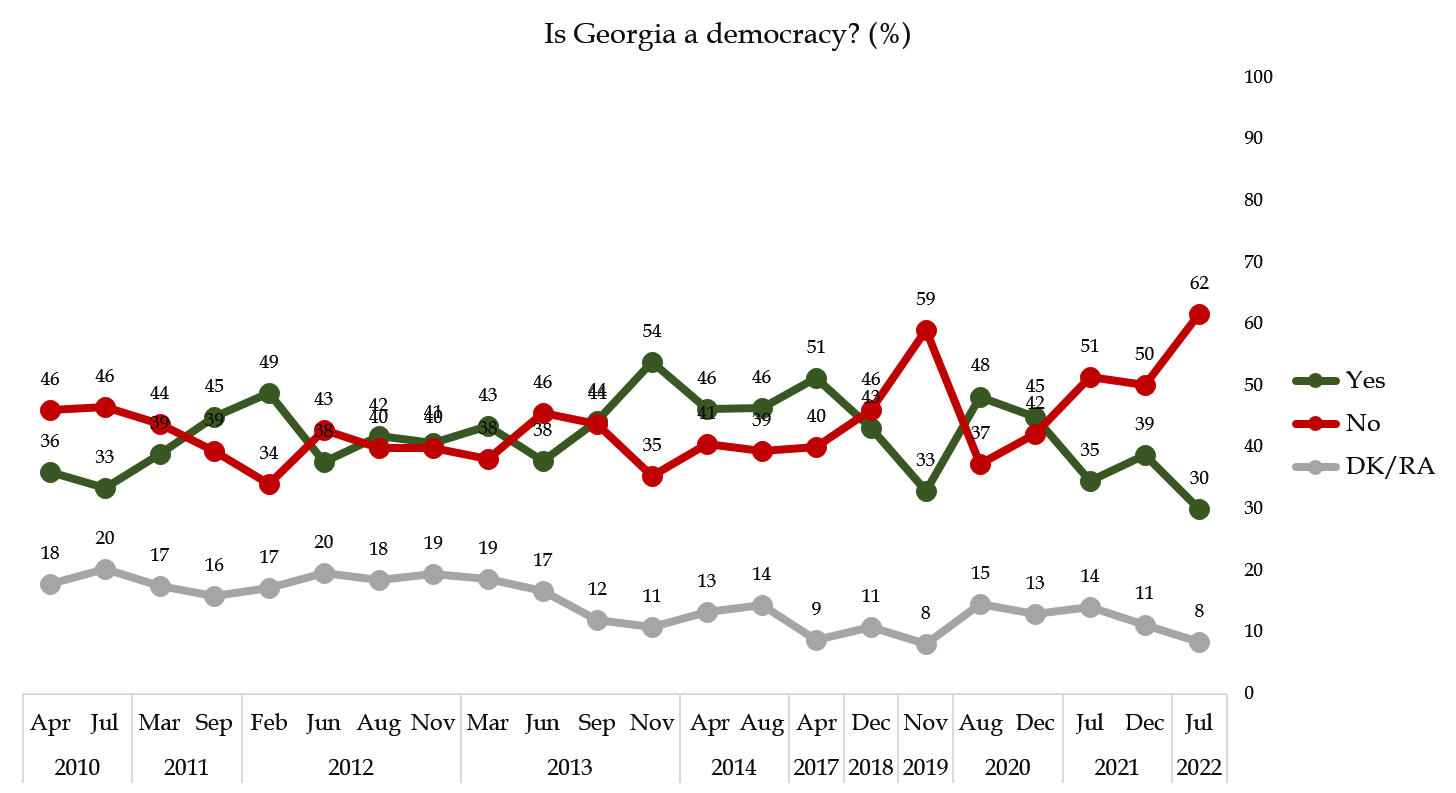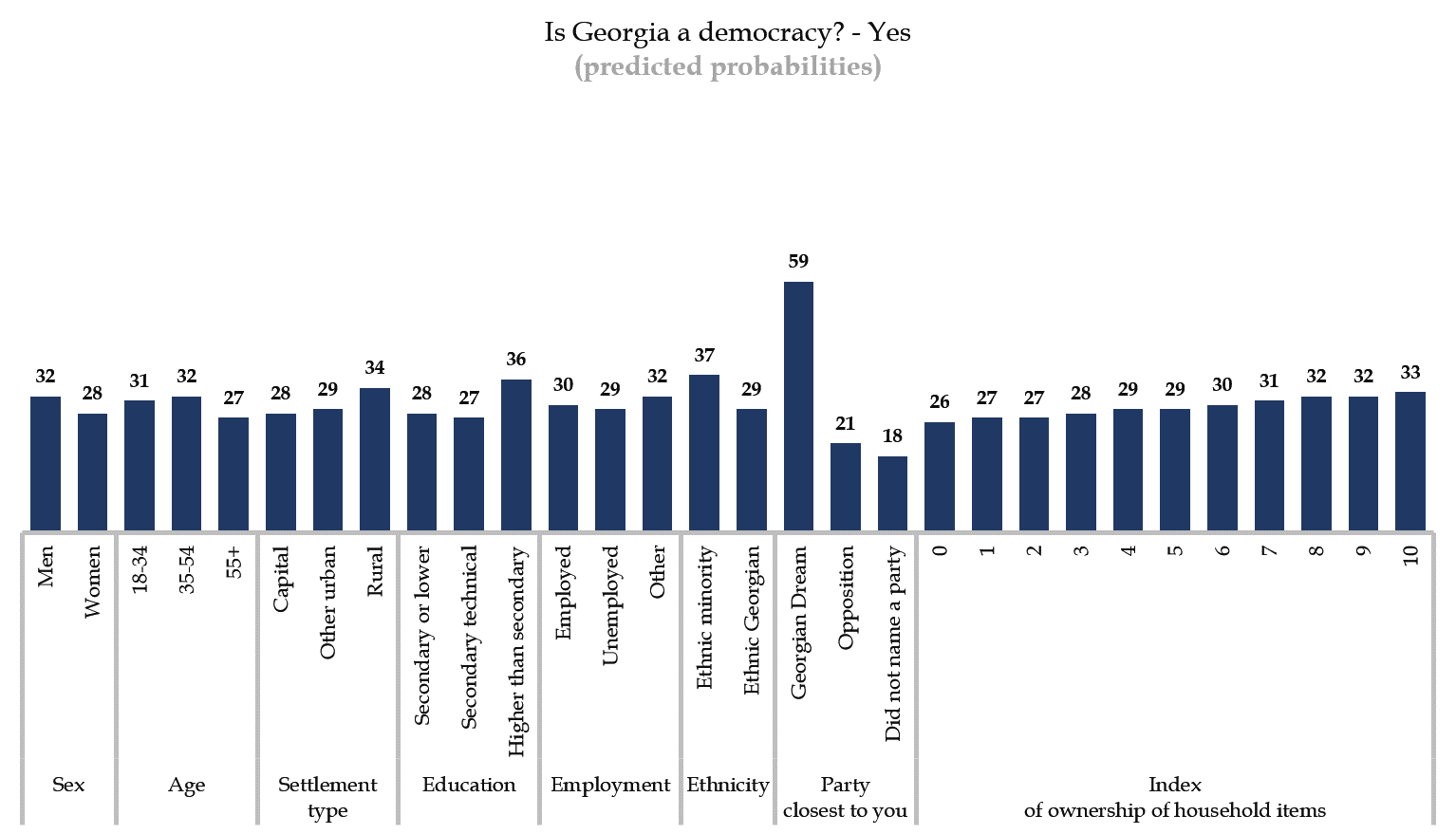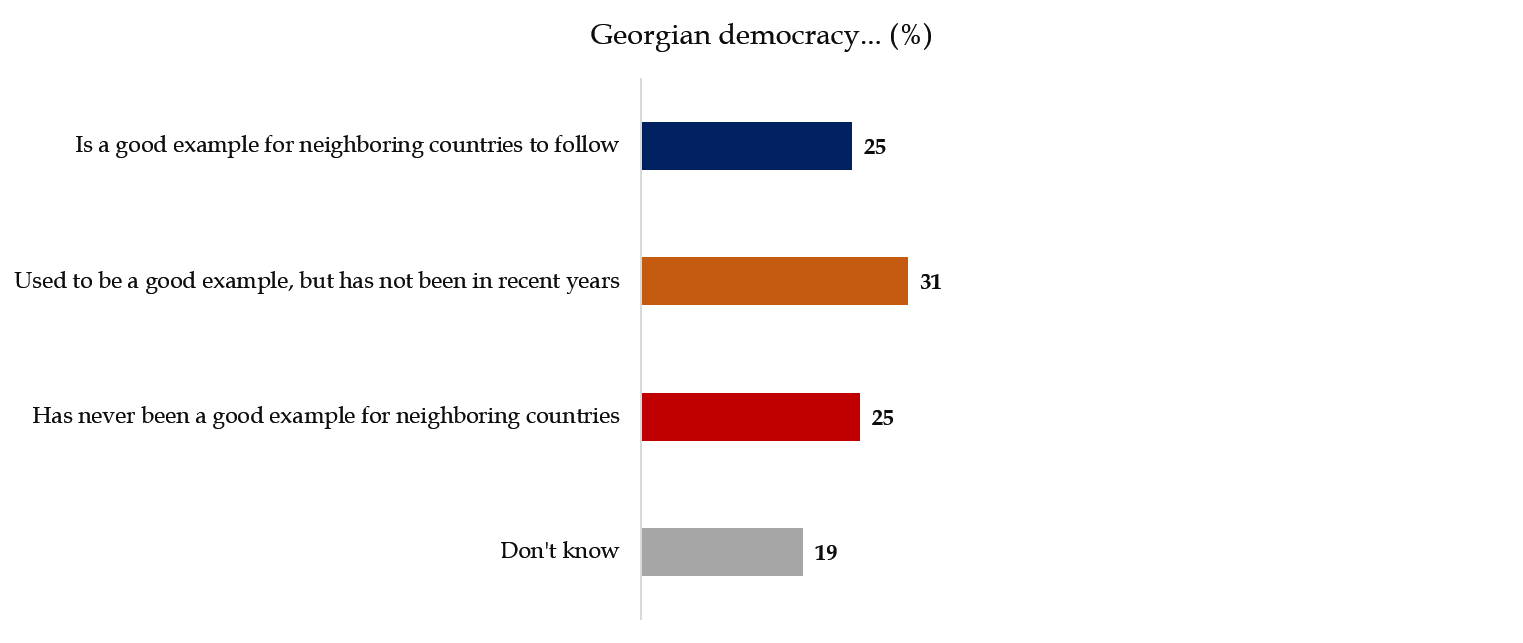
The share of Georgians who think the country is a democracy is at its lowest for the last decade. Supporters of the ruling party are the exception to this trend, tending to believe that the country’s democracy remains a good example for others.
Newly released NDI/CRRC data suggests that Georgians are growing increasingly sceptical about democracy in the country. Except for supporters of the ruling Georgian Dream (GD) party, a majority of all other groups think that Georgia is not a democracy.
As of 2022 August, only three out of ten Georgians felt Georgia was a democracy. Since 2010, when NDI and CRRC started to ask this question in nationwide surveys, this is the lowest share of the public expressing the opinion that Georgia is a democracy. Similarly, the share of the public explicitly saying Georgia is not a democracy was highest in August 2022.

NOTE: There are no data for 2015 and 2016
Logistic regression analysis was conducted to understand the differences between different groups. Age, sex, settlement type, employment status, ethnicity, and wealth are not associated with whether people think Georgia is a democracy or not, while education and party support are.
People with a tertiary education are more likely to say that Georgia is a democracy than people with secondary or lower levels of formal education. However, a majority of people of all education levels tend to think that Georgia is not a democracy.
By far, the largest difference in attitudes to this question are between supporters of different parties. Supporters of the ruling party are 38 percentage points more likely than opposition supporters and 41 percentage points more likely than voters with no party preference to consider Georgia a democracy.
GD supporters constitute the only group in the electorate of whom a majority think that Georgia is a democracy, controlling for other factors.

Another question on the NDI and CRRC August 2022 survey leads to similar conclusions. A quarter of the public (25%) think that Georgian democracy is a good example for neighbours, 31% believe that the country used to be a good example but ceased to be one, and another quarter (25%) feel that Georgia has never been an exemplary democracy. The remaining fifth (19%) of the electorate report that they do not know.

Multinomial regression analysis was conducted to better examine group differences. The results yielded were similar to those of the previous analysis. GD supporters hold exceptionally dissimilar and at the same time optimistic views regarding the quality of democracy in Georgia compared to the rest of the population.
Supporters of the ruling party are 35 percentage points more likely than opposition supporters and 32 percentage points more likely than non-affiliated voters to think that Georgian democracy is a good example for neighbours. GD supporters are also 30 percentage points less likely than opposition supporters and 16 percentage points less likely than non-partisans to believe that democracy in Georgia used to be exemplary, but no longer is.

The fact that the share of the public that considers Georgia to be a democracy is at its lowest since 2010 corresponds with the views of Freedom House, The Economist Intelligence Unit, and the Varieties of Democracy index, all of which have commented on Georgia’s democratic backliding.
However, GD supporters, in stark contrast to the rest of the public, tend to believe that Georgia is an exemplary democracy even in 2022.
Note: The above data analysis is based on logistic and multinomial regression models which included the following variables: age group (18-34, 35-54, 55+), sex (male or female), education (completed secondary/lower, technical or incomplete higher education/higher), wealth (an additive index of ownership of 10 different items, a proxy variable), employment status (employed, not employed, other) ethnicity (ethnic Georgian or ethnic minority), and party identification (Georgia Dream, opposition, did not name a particular party).
This article was written by Givi Silagadze, a researcher at CRRC Georgia. The views expressed in this article are the authors’ alone and do not represent the views of NDI, CRRC Georgia, or any related entity.








